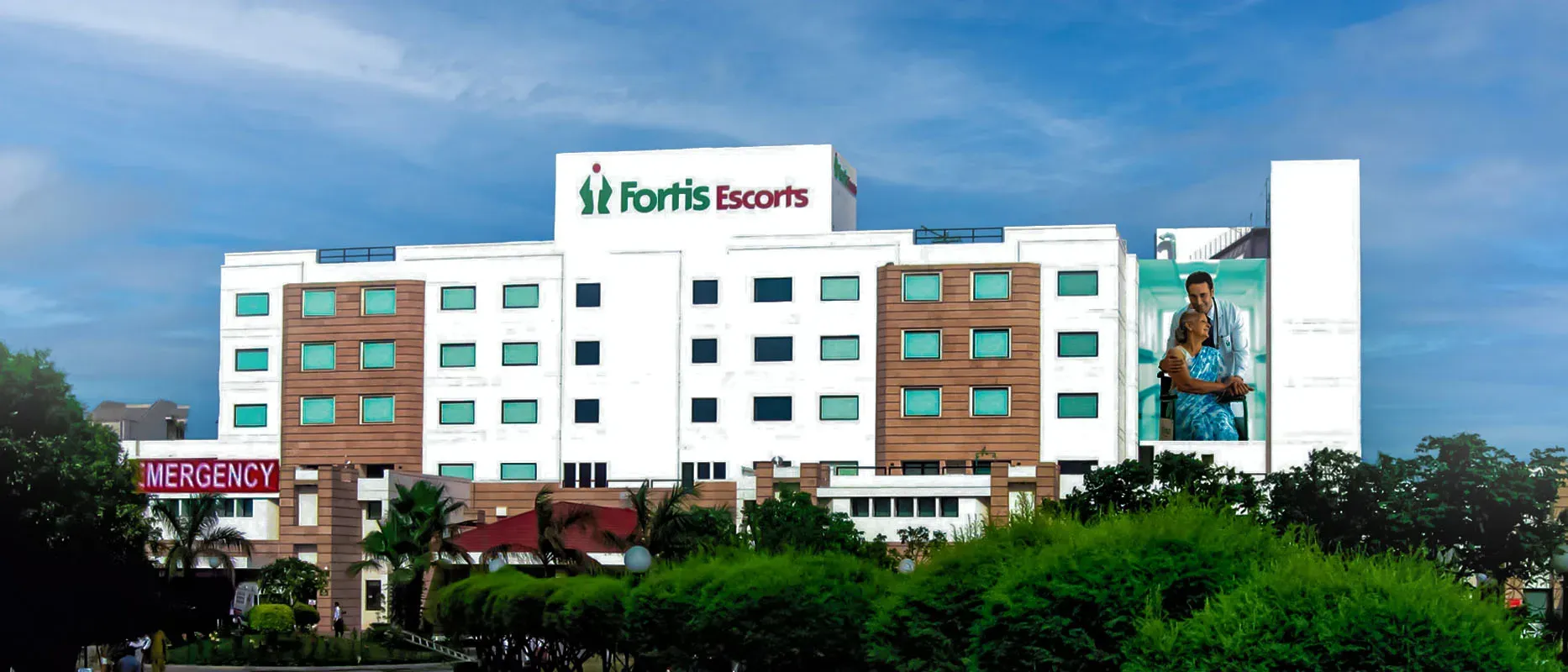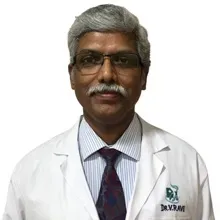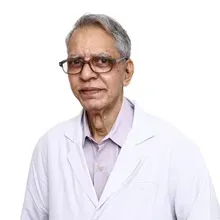Overview of Hip Replacement Surgery Treatment India
Total hip replacement is a vastly used medical procedure and is very authentic. Almost all of the people receiving total hip replacement became active and their quality of life improved. But in some cases, due to any cause the hip transplant procedure fails and doctors need to perform a second surgery which is called Revision Total Hip Replacement surgery. In the revision of total hip replacement, there may be a need to either remove all of the prosthesis implanted previously or may be some parts of the prosthesis. Both total hip replacement and revision total hip replacement procedures are performed to relieve patient’s symptoms and improve life quality. But the two procedures are quite different from each other. The revision total hip replacement is a very complex procedure and it needs some special kind of tools to perform the procedure. When a total hip replacement procedure fails, it causes some damage to surrounding tissues and bones that makes it difficult for the doctor to perform revision total hip replacement surgery. For this purpose, surgeons have to use some special kind of equipment and tools to compensate for the damage to bones and tissues. The revision of total hip replacement surgery gives the long-term effect to patients but in some of the cases the patients have not recovered fully and may experience some pain and dysfunction.
Types of Hip Replacement Surgery Treatment India
There are different types of revision total hip replacement surgeries that depend on the extent of the problem and the specific needs of the patient. Here are some common types:
- Component exchange
- Stem revision
- Cup revision
- Complete revision
- Complex revision
Component Exchange
In this type of revision, only one component of the hip prosthesis is replaced while the other components remain intact. For example, if the cup or socket is causing issues, it may be removed and replaced with a new one, while the femoral stem remains as before.
Stem Revision
When the femoral stem of the hip prosthesis is causing problems, it may need to be changed. This involves removing the existing stem and replacing it with a new one that is most suitable to the patient's condition.
Cup Revision
These types of revision are used when the cup socket is loose, unstable, or causing other issues. The damaged cup is removed, and a new cup is implanted. It requires special techniques and equipment to perform this procedure.
Complete Revision
Sometimes, both the femoral stem and the cup need to be replaced due to extensive damage, loosening of prosthesis, infection, or other complications. A complete revision involves removing the entire existing hip prosthesis and replacing it with a new one.
Complex Revision
In some cases, the revision surgery becomes more complex and may involve additional procedures such as bone grafting, reconstruction of bone defects, or the use of specialized implants to resolve the issues of severe bone loss or tissue deformities.
Procedure of Revision Total Hip Replacement
The procedure of revision total hip replacement is more complex and time taking than primary hip replacement surgery. The general overview of the revision total hip replacement is:
Pre-operative assessment: in this, the examination of the patient’s medical history, tests and screening is performed to assess the damage of the bone and previously implanted prosthesis. This assessment will help the surgeon to choose a specific surgical technique.
Anesthesia: the surgeons performed incision under the effect of anesthesia to reduce pain and irritation. The incision can be made on the previous hip replacement incision or can be made a new one. It usually depends on the demand of the procedure.
Dislocating the Previous Implant: The surgeon will carefully dislocate the previous hip implant and remove the components from the hip joint. This may involve cutting and removing bone or cement that may have been used to fix the implant in place during the primary surgery.
Removal of Damaged Components: The surgeon will remove the old implant components, including the cup (socket) and femoral stem (thigh bone component). Specialized instruments and techniques may be required to remove any cement or damaged part of a bone.
Preparation of the Bone: After removing the old implant, the surgeon will prepare the remaining bone surfaces to receive the new implant components. This may involve removing any remaining cement, cleaning the bone, and shaping it to fit the new implant.
Implanting the New Components: The surgeon will insert the new cup and secure it into the prepared socket using screws or a press-fit technique. A new femoral stem is then inserted into the femur and fixed either with bone cement or by using a press-fit technique that depends on the condition of the bone.
Closure: Once the new components are in place, the surgeon will close the incision using sutures. A sterile dressing will be applied to the wound. After closing the incision, medications to prevent any infection are necessary to avoid any further complications.
Post-operative care: the medications to prevent the clot formation and infections are necessary to avoid complications. Physical therapy is also required to restore the normal function of joint and muscle strength.
The Cost of Revision Total Hip Replacement Surgery in India
Cost of Revision Total Hip Replacement in Different Cities of India
The cost of revision hip replacement surgery in India typically ranges from ₹ 2,90,000 to ₹ 4,40,000 However, it's important to note that the cost can vary depending on various factors such as the specific hospital, skill of a surgeon and patient’s condition. The cost may also differ according to the city.
| Revision Total Hip Replacement Surgery Cost Treatment Cities in India |
Min in INR |
Max in INR |
| Bangalore |
₹ 3,15,000 |
₹ 5,60,000 |
| Delhi |
₹ 2,90,000 |
₹ 4,95,000 |
| Mumbai |
₹ 2,90,000 |
₹ 5,70,000 |
| Gurgaon |
₹ 2,10,000 |
₹ 2,70,000 |
| Chennai |
₹ 3,10,000 |
₹ 5,60,000 |
| Hyderabad |
₹ 4,00,000 |
₹ 6,50,000 |
| Pune |
₹ 3,60,000 |
₹ 6,20,000 |
| Kolkata |
₹ 3,70,000 |
₹ 6,00,000 |
| Kochi |
₹ 3,30,000 |
₹ 4,90,000 |
Symptoms and Risk factors
There are certain situations where revision total hip replacement surgery is performed. Some of these conditions are:
- Failed previous hip replacement surgery
- Fracture around the hip replacement components
- Implant instability
- Component wear and tear
- Metal allergy
- Osteoporosis-related complications
- Aseptic loosening
- Infection
- Dislocation
- Bone loss
- Component malposition
- Metal debris reaction.
Risk Factors Associated with Revision Total Hip Replacement
The revision total hip replacement is a very complex procedure and has many risk factors. Some of these risk factors are described below:
Loosening of an Implant
Excessive physical activity and obesity in some persons can lead to loosening of the implants that can cause pain, reduce movement of joints and decrease stability to perform the activities of daily living.
Infection
Infection may appear immediately after surgery but sometimes it may appear late. In this situation infection-causing agents, mostly bacteria, enter the blood and then settle into the hip joint and make the recovery process more complicated.
Fractures
Poor technique and tools used in the revision total hip replacement can cause fractures in the bones. This can lead to further damage to bones and tissues which can cause failure of the revision surgery.
Presence of Other Diseases
Diabetes, obesity, cardiovascular disease, and autoimmune disorders can affect the healing process and increase the risk of complications. This may dislocate the hip joint in which case a new surgery is necessary to be performed.
Surgical Complications
The surgical procedures can also cause many complications. These include surgical errors, inappropriate positioning of the implant, poor soft tissue repair, injury of nerves and blood vessels, and partial wound healing.
Top Hospitals for Revision Total Hip Replacement Surgery in India
Shaping the future of the healthcare institution and establishing the path to accomplishment.
Top Doctors for Revision Total Hip Replacement Surgery in India
Empower your Health with the Expertise of Leading Medical Professionals.
Dr. Bhushan Nariani
Department of Orthopedics
Senior Director Joint Replacement
Book Appointment
Dr Ravi Venkatesan
Department of Spine & Orthopedics
Consultant
Book Appointment
Treatment Costs for Revision Total Hip Replacement Surgery
Be the change and be an opportunist in transforming healthcare.
How it's Works
Guiding your Journey from Discovery to Treatment Planning and Beyond.
Discovery
Get a consultation to discover about your treatment
Pre-Treatment
Admission to the best hospital and all pre-treatment facilities
Post Treatment
Get post-treatment follow-up care with medicine fulfillment
Treatment Planning
Hassle-free treatment planning with package & cost estimations
in-treatment
world-class quality procedures and equipment for treatment


























